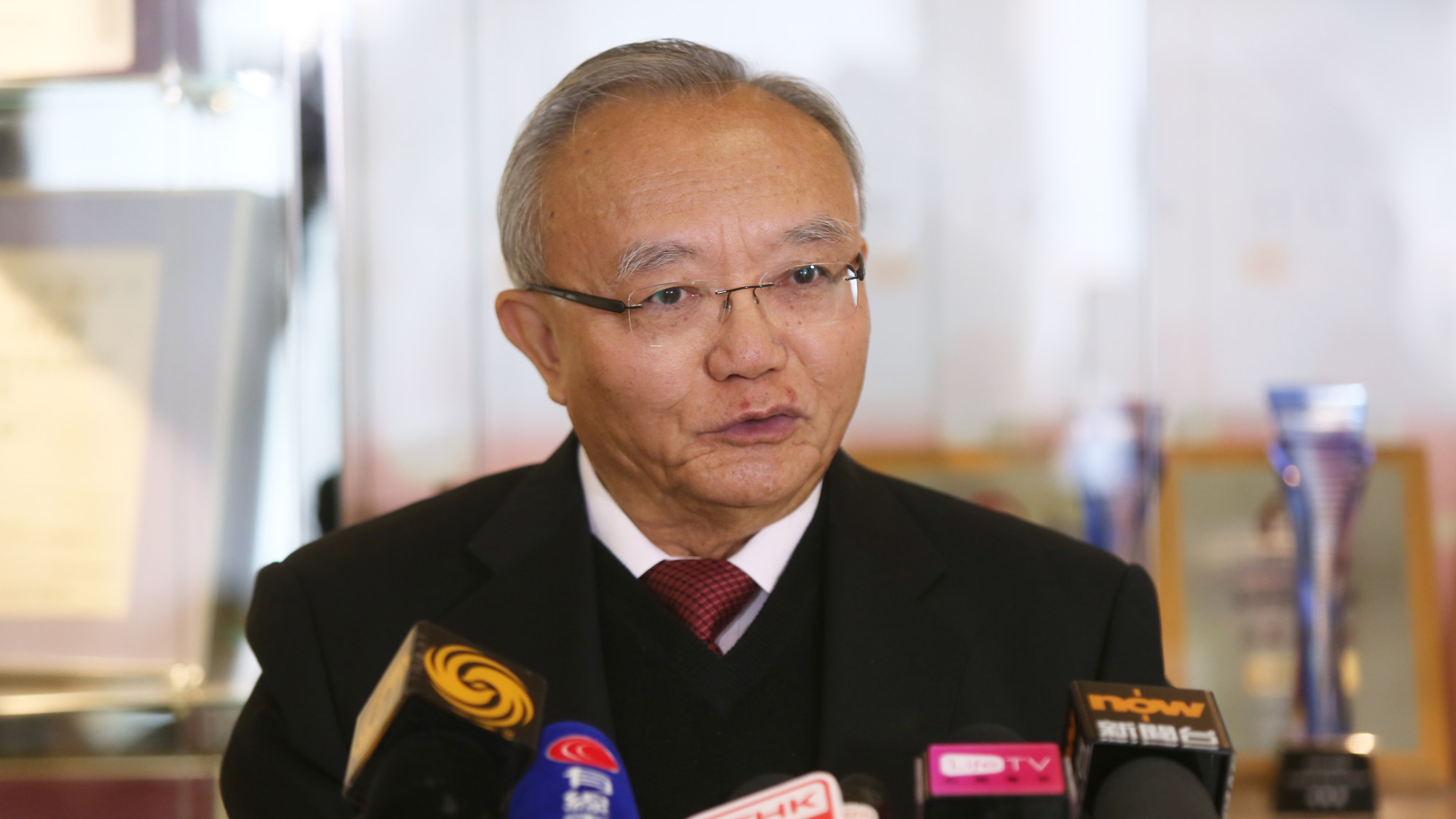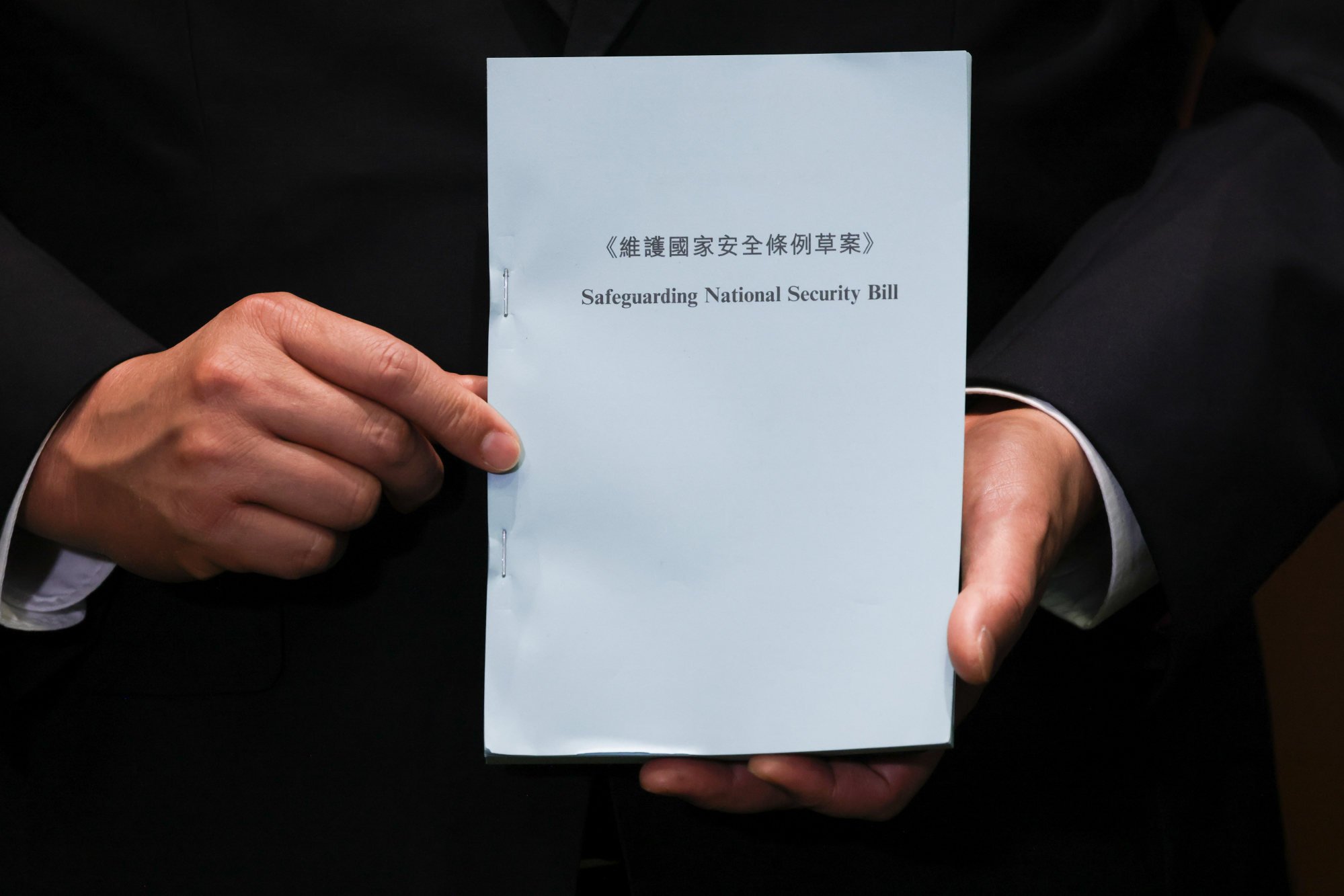
Hong Kong authorities urged to do more to explain proposed domestic security law, tackle concerns among international community
- While acknowledging need to enact new legislation as a constitutional obligation, some experts also raised concerns about potential abuse of power
- Others are supportive of the draft bill and do not see any significant outstanding issues
Hong Kong authorities should do more to explain their proposed domestic security legislation to address persistent concerns among the international community and prevent any misunderstanding that could harm the city’s reputation, some analysts and legal experts have told the Post.
Others were supportive of the draft bill presented to the Legislative Council on Friday and did not see any significant outstanding issues.
Hong Kong lawmakers speed through first scrutiny of domestic security bill
While acknowledging the need to enact the new legislation as a constitutional obligation, some of them also raised concerns about potential abuse of power in its enforcement, citing provisions in the draft bill for authorities to extend the initial period of detention and bar suspects from contacting lawyers.
Political scientist Hung Wing-lok of the Chinese University of Hong Kong said Beijing was still worried about national security risks in the city, given geopolitical complexities at a time of escalating tensions between China and Western powers led by the United States.
“The advantage of quickly doing this is to fill in some holes and gaps in the current national security law system. But from a Western point of view, Hong Kong might become just another Chinese city,” he said.
“The government will need to do more work to convince the West that the city still enjoys a special status under the ‘one country, two systems’ [governing formula for Hong Kong].”
Hung added that the strong reactions from Western powers raising concerns about any negative impact on local rights and freedoms might influence the public and undermine the work of the government.
10 things you will want to learn about Hong Kong’s new Article 23 legislation
Professor Lau Siu-kai of semi-official Beijing-based think tank the Chinese Association of Hong Kong and Macau Studies, was not particularly worried about Western criticism.
“Whether we do it quickly or more slowly, it is bound to draw criticism from hostile foreign forces,” he said.
“The West might consider some sanctions against Hong Kong after the bill is passed, but the Beijing and Hong Kong governments should be prepared for it and ready to respond.”
Lau said the general public might not share the sense of urgency felt by the authorities to enact the law as soon as possible, so the government should watch out for the possibility of widespread discontent.

University of Hong Kong law professor and former Basic Law Committee member Albert Chen Hung-yee said his impression of the draft bill was that it had modified and refined the government’s original proposals to address “most of the concerns expressed during the consultation exercise”, including his own.
“Overall speaking, I do not think the national security bill is harsher than similar national security laws in many other countries,” he told the Post.
In its first attempt to introduce the legislation under Article 23 of the Basic Law in 2003, the government gazetted the bill 12 days before tabling it at Legco, having spent three months gathering public feedback.
This time, the public consultation exercise lasted for only a month and the bill was presented to lawmakers within three hours of being published in the government gazette.
As it happened: Hong Kong security bill readings advance, meetings set for weekend
Officials have repeatedly stressed the need to enact the legislation urgently to complement the Beijing-imposed national security law and plug remaining loopholes in the overall legal framework.
Chinese Vice-Premier Ding Xuexiang recently called for the early passage of the legislation, saying it would help the city shift its primary focus to economic development and enhancing livelihoods.
The 212-page bill, now being vetted by lawmakers, lists out 39 offences with penalties, including life imprisonment for crimes such as treason or insurrection, and raises the maximum punishment for sedition to seven years in jail from the current two years.

Lo Kin-hei of the opposition Democratic Party said Legco’s fast-tracking of the bill would inevitably give people the impression that the process was done “in too much of a hurry”.
“Lawmakers have started scrutinising the bill despite being just given 212 pages to digest,” he said. “I don’t expect any real issues to be raised or the government to make any changes to the bill in the process.”
Lo said his party would still consider filing a submission to the authorities, especially regarding the definition of state secrets which he argued remained vague.
But Ko Wing-man, an adviser to the government in the decision-making Executive Council, stressed the need for the urgent passage of the bill.
“Certain foreign forces might have plotted campaigns in response to what [the government] does. They have been good at these propaganda tricks,” said Ko, who is also a standing committee member of China’s top political advisory body.
Some critics warned that the proposed legislation would provide the government with additional tools to crack down on dissent, following Beijing’s imposition of the national security law in 2020 which put an end to the protest chaos of 2019.
Human rights lawyer Mark Daly lamented that the haste to push the legislation through “will not allow proper comparative analysis with international expertise and experience”.
“Overall it runs counter to Hong Kong’s tradition and expressed goal of being international,” he said.
Daly also expressed concern about the possible denial of immediate access to defendants’ lawyers of choice, saying it deviated from traditional common law protections.
He was referring to the draft provision for senior police officers to apply for court warrants to bar suspects from consulting “particular lawyers” if deemed to endanger national security, or to restrict their movements for three months or more.
The bill would also allow police to apply to the courts for extending the initial detention period for national security offenders for 14 days, from the current 48 hours.
Hong Kong Article 23 bill has life sentence for crimes such as treason, insurrection
Daly also raised concerns about the maximum penalty for the offence of sedition, which the bill increased to seven years from two years behind bars.
“Having experience of the misuse of sedition in other jurisdictions and noting that the United Nations human rights experts have already stated that the offence should be repealed, it is of great concern that the proposal is not only to remove the necessity of inciting imminent violence but increase punishment to seven or 10 years,” he said.
Property developer David Chiu Tat-cheong, also a standing committee member of China’s top political advisory body, was convinced Hong Kong’s business environment would not be affected.
“It’s an exaggeration for some to say that Article 23 deviates from common law principles. [The legislation] will stand the test of time,” he said.
“Beijing always intends to keep Hong Kong a very free city, in terms of travel and people’s way of life. The quicker we complete the legislation, the quicker Hong Kong can focus back on business, where our strength lies.”
Additional reporting by Jess Ma and Jeffie Lam


